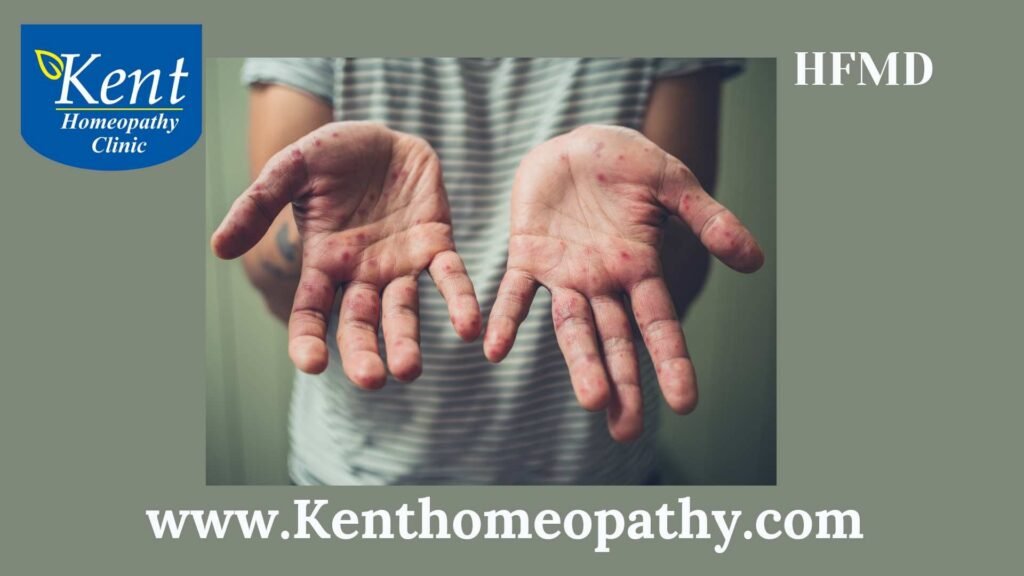HFMD

Hand, Foot, and Mouth Disease (HFMD): Understanding Symptoms, Causes, and Types
Hand, Foot, and Mouth Disease (HFMD) is a viral illness primarily affecting infants and children, although it can also occur in adults. It is commonly caused by enteroviruses, with the most prevalent culprits being coxsackieviruses, particularly Enterovirus 71 and Coxsackievirus A16. Understanding the symptoms, causes, and types of HFMD is crucial for early detection and appropriate management.
Symptoms:
- Fever: HFMD often begins with a sudden onset of fever, which may be moderate to high.
- Sore Throat: Painful sores or ulcers may develop in the mouth, leading to discomfort and difficulty swallowing.
- Rash: Small, red spots or blisters may appear on the palms of the hands, soles of the feet, and sometimes on the knees, elbows, or buttocks.
- Loss of Appetite: Children with HFMD may experience a reduced desire to eat due to soreness in the mouth.
- Irritability: Young children may become irritable or fussy, especially if they are experiencing pain from mouth sores.
Causes:
HFMD is primarily caused by enteroviruses, and transmission occurs through:
- Close Contact: The virus spreads through respiratory droplets from an infected person, such as coughing or sneezing.
- Contact with Contaminated Surfaces: Touching surfaces or objects contaminated with the virus and then touching the face, mouth, or hands.
- Fecal-Oral Route: In some cases, the virus may be present in the feces of an infected person, leading to transmission through contaminated food, water, or surfaces.
Types:
While coxsackieviruses, particularly A16 and Enterovirus 71, are the primary causes of HFMD, there can be variations in symptoms and severity. Enterovirus 71, in particular, is associated with more severe cases, including neurological complications. Coxsackievirus A6 has also been linked to more atypical and severe presentations of HFMD.
Complications:
While HFMD is typically a mild and self-limiting illness, complications may occur, especially in severe cases. These complications can include:
- Dehydration: Difficulty in eating and drinking due to mouth sores can lead to dehydration, especially in young children.
- Secondary Infections: Bacterial infections may occur if the blisters become scratched or infected.
- Neurological Complications: Enterovirus 71, in rare cases, has been associated with neurological complications such as encephalitis, which can be serious.
Contact to know more
Contact
Timings
Monday to Saturday:
11:00 AM to 02:30 PM
06:30 PM to 09:00 PM
